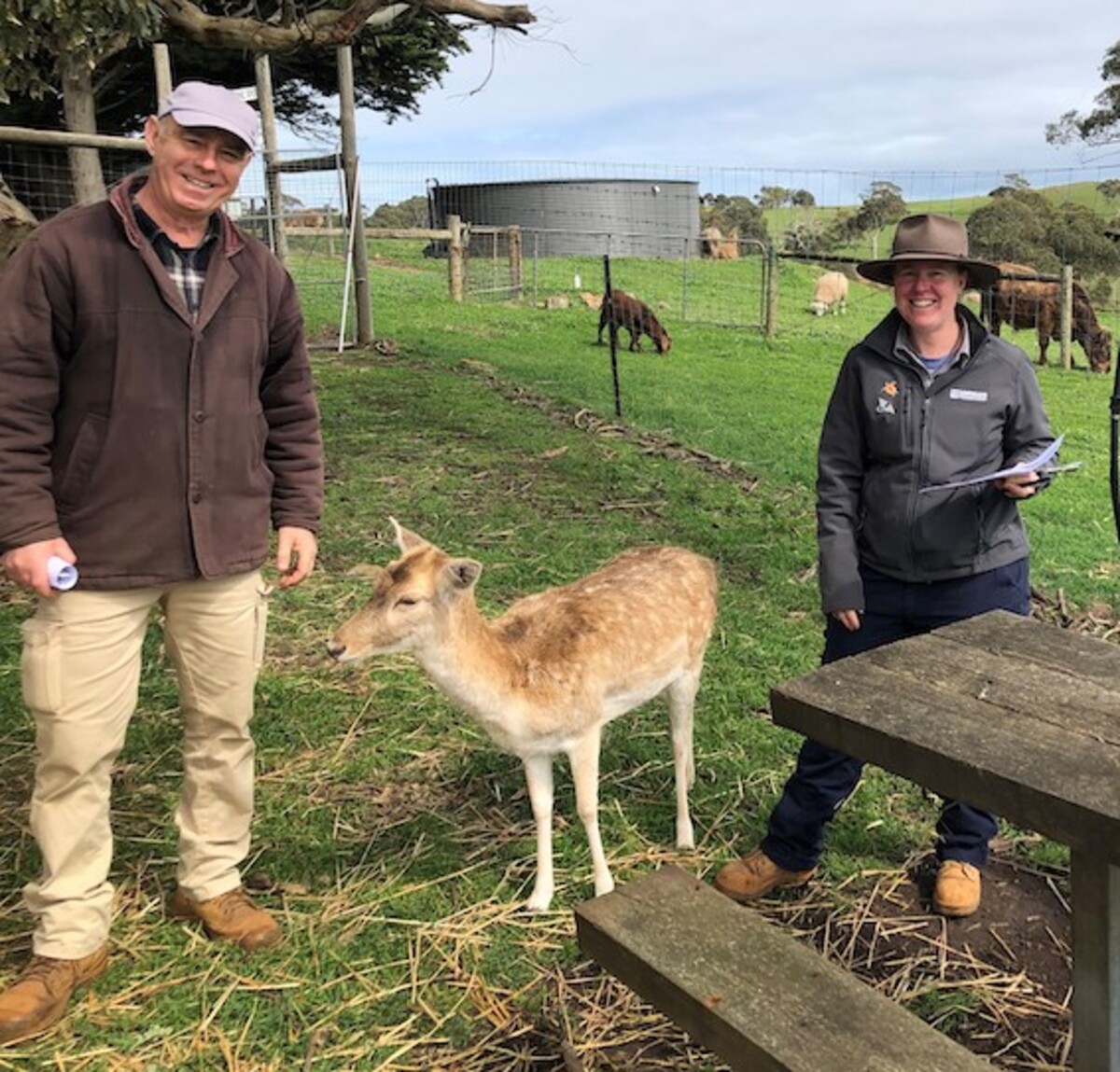Keeping deer on the right side of the fence
Staff Reporters
09 May 2025, 2:56 AM

Landscapes Hills and Fleurieu has been working with landholders to carry out routine fence inspections across 26 local deer farms over recent months.
These inspections, conducted every two years, are a key tool in reducing the risk posed by escaped or untagged deer.
Jenni Bailey, Compliance Officer at Landscapes Hills and Fleurieu, says the inspections are important.
“Feral deer pose serious risks to both agriculture and native ecosystems - damaging crops, competing with wildlife, degrading habitat, and posing road safety hazards.
“Numbers in the Hills and Fleurieu region threaten to spiral out of control without dedicated control programs. A key component of these efforts is preventing the escape of farmed deer.
“Our team conducts fence inspections on deer farms every two years to ensure they meet the necessary standards for containing farmed deer and preventing them from contributing to feral populations.
“Under current regulations, any untagged deer are considered feral and must be controlled by the landholder,” she says.
“These visits also provide an opportunity for one-on-one discussions with landholders, allowing us to address not only fencing but also the broader aspects of natural resource management.
“It’s a valuable opportunity to share advice, listen to concerns, and provide personalised support”
Escaped farmed deer contribute to the growing feral deer population, which already increases at an annual reproduction rate of 35 per cent.
Independent analysis at a state level has shown that feral deer currently cost South Australia's primary production sector several million dollars each year, a figure projected to rise to $242 million annually by 2031 without intervention.
Jenni emphasises the importance of ongoing vigilance in ensuring deer are securely contained.
“It’s essential to regularly inspect boundary fences, particularly after storms or high winds. Ensuring farmed deer remain secure and preventing them from mixing with feral deer is crucial to avoiding an increase in feral numbers and protecting the progress achieved through control programs.
“By working together, we’re not only managing deer more effectively but also protecting our shared landscape for future generations.”
Landscapes Hills and Fleurieu thanks the region’s deer farmers for their strong commitment to responsible deer management and encourages anyone seeking advice or support to get in touch.
“We’re here to help, whether it’s understanding your responsibilities regarding deer fencing and ear- tagging or advice on controlling feral deer on your property, which is also a legislative landholder responsibility under the Landscape South Australia Act,” Jenni says.
For more information about fencing standards or feral deer management, visit the Landscapes SA website.